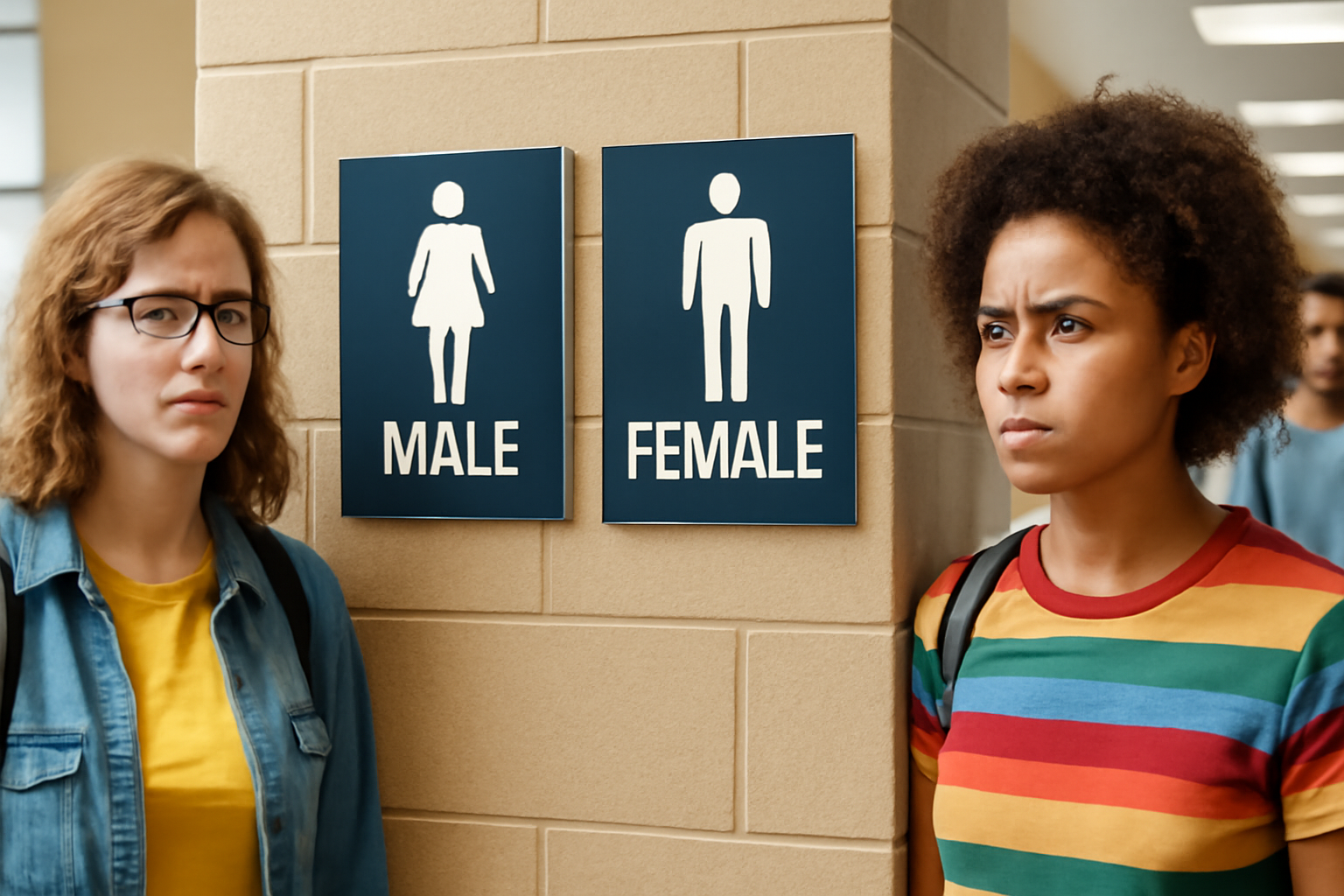
In a recent development, a university in Ohio became the center of a heated discussion after posting signs on restroom doors that labeled them according to 'biological sex.' The move quickly sparked debate among students, faculty, and the broader community, raising important questions about inclusion and respect for all individuals, regardless of gender identity.
Signage Sparks Immediate Backlash
Almost as soon as the signs appeared, they were met with criticism. Students and faculty members voiced concerns that the signage ignored the needs and rights of transgender and non-binary individuals. Many felt that the university was not living up to its commitment to create an inclusive environment for all community members.
"I was shocked and disappointed to see the signs," said one student, who identifies as non-binary. "It felt like a step backwards after all the progress we have made towards inclusivity on campus." Others echoed these sentiments, noting that the signs could potentially make transgender and non-binary students feel unwelcome and marginalized.
University's Response and Clarification
Following the backlash, the university administration issued a statement explaining that the signs were posted due to a misunderstanding and were not part of a new policy initiative. According to the statement, the signs were intended to comply with a state regulation, but the administration acknowledged that the implementation was mishandled.
"We apologize for any distress and confusion this has caused," said a university spokesperson. "Our intention is to ensure that all individuals feel safe and included on our campus, and we recognize that this incident did not align with those values." The university promised to remove the signs immediately and review their processes to prevent similar issues in the future.
Moving Forward with Inclusivity
In light of the incident, the university has pledged to engage more deeply with its LGBTQ+ community to better understand their needs and concerns. This includes hosting forums and discussions to gather input on how to improve campus facilities and policies moving forward.
Furthermore, the university is looking into more comprehensive training for staff and administrators about gender identity and inclusion. "We are committed to learning from this experience and ensuring it leads to positive changes," the spokesperson added.
Students and advocacy groups have welcomed these commitments, although some remain cautious. "It's a step in the right direction, but we will be watching closely to make sure the university follows through," said one representative from an on-campus LGBTQ+ group.
Broader Implications and Discussion
This incident has sparked a wider conversation about gender identity and inclusivity on college campuses. Many believe that universities have a responsibility to lead by example in creating inclusive environments that respect and affirm all individuals, regardless of their gender identity.
"It's about more than just signs; it's about creating a culture of respect and validation," said a professor of gender studies on campus. "We need to ensure that every member of our community feels seen and supported."
The incident at the Ohio university serves as a reminder of the ongoing challenges and work needed to ensure inclusion and equity for LGBTQ+ individuals, particularly in educational settings. By addressing these challenges openly and proactively, universities can play a pivotal role in fostering a more inclusive and respectful society.
As the university takes steps to address the concerns raised by this incident, it joins a larger movement across educational institutions to create safe and affirming environments for all students. The hope is that these efforts will lead to lasting change and set a precedent for other institutions to follow.
In conclusion, while the posting of the restroom signs was deemed a mistake by the university, the discussions it has prompted are an important step toward greater understanding and inclusivity. It is crucial that the momentum from these conversations leads to meaningful actions and improvements that benefit the entire campus community.
Related Posts
Triumphant Trans Woman Wins Legal Battle and Inspires Others to Stand Up for Their Rights
Breaking new ground: a landmark victory in transgender rights After battling in courtrooms and enduring endless challenges, Diana Portillo, a transgender woman, has secured a monumental victory in her decade-long fight against workplace discrimination. The result? Nearly $1 million awarded in a historic settlement. But this isn't just a win on paper—it represents a powerful precedent in combati [...]
Pride Month in Latin America: Protests and Demands for Equality
**Celebrating Pride and advocating LGBTQ+ rights in Latin America** Pride Month in Latin America was a lively mix where celebration met activism. Communities united, not just throwing a party but making a stand—demanding equality and pushing governments toward better protection and rights recognition. Throughout Latin America, pride events erupted in marches and cultural displays, each with a c [...]
Transgender Erasure Actions Implemented by National Park Service
```html Trump administration's impact on national park service and transgender recognition The Trump administration made notable moves in undermining transgender representation, which included directing agencies like National Park Service not include "T" and "Q" when they refered “LGBTQ” in any official communication. This move seems part a broader plan by this administration aimed at reducin [...]